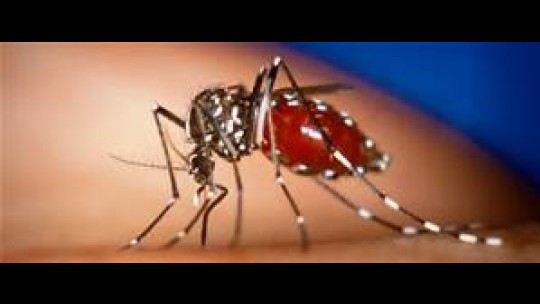It is now confirmed: Jamaica has its first imported case of the chikungunya disease. Dr. Kevin Harvey, the country's Chief Medical Officer, reported the confirmation of diagnosis on Thursday morning.
The announcement followed receipt of a report from the Caribbean Public Health Agency (CARPHA), confirming that the sample sent on Tuesday is indeed positive for the chikungunya virus. Dr. Harvey had previously explained that the case is of an individual who travelled from an affected country and fell ill.
The announcement followed receipt of a report from the Caribbean Public Health Agency (CARPHA), confirming that the sample sent on Tuesday is indeed positive for the chikungunya virus. Dr. Harvey had previously explained that the case is of an individual who travelled from an affected country and fell ill.
“The Ministry will continue with its heightened surveillance and will be taking steps to reduce the vector through its vector control programme. Individuals should ensure that they protect themselves from mosquito bites by using insect repellent containing DEET and covering their body as much as possible by wearing long sleeved clothing for example,” Dr. Harvey said.
There is no specific treatment for the chikungunya virus, nor is there a vaccine. Dr. Harvey is therefore urging everyone to not only protect themselves from mosquito bites, but also reduce the possibility of mosquito breeding.
“The Aedes aegypti is a day biting mosquito that will almost always be found in and around areas where people live, work and play. The mosquito breeds in water that settles around homes, schools, churches, workplaces and playgrounds. Persons are urged to search for and destroy mosquito breeding sites in and around their homes, workplaces and communities by getting rid of old tyres and containers in which water can settle, punching holes in tins before disposing, and covering large drums, barrels and tanks holding water,” he urged.
Symptoms
Symptoms of Chikungunya fever include high fever, headache, muscle pain, joint pain mainly in the limbs and large joints and a rash. Although it does not often result in death, joint pains and stiffness can last for months and even years. It may become a source of chronic pain and disability resulting in the individual being unable to attend work or school.
Infants and the elderly are at greater risk for more severe disease. There are some diseases that may increase the risk for severe disease such as diabetes mellitus and cardiovascular disease.
The Ministry of Health is advising anyone who experiences any of the symptoms of chikungunya to visit a doctor or the nearest health centre immediately.
As of July 14, 2014, twenty eight (28) countries and territories in the Caribbean and Latin American Region have reported cases of chikungunya with a total of 5,227 confirmed.









 All feeds
All feeds







